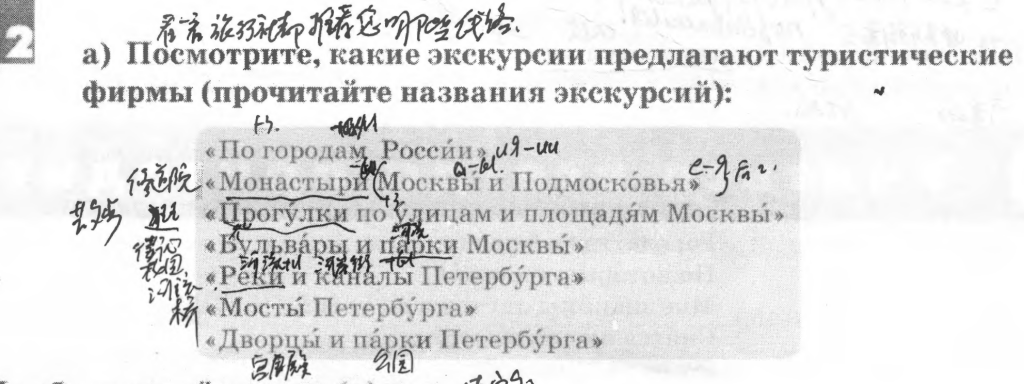
а) 看一看 旅行社都推荐您哪些旅游线路

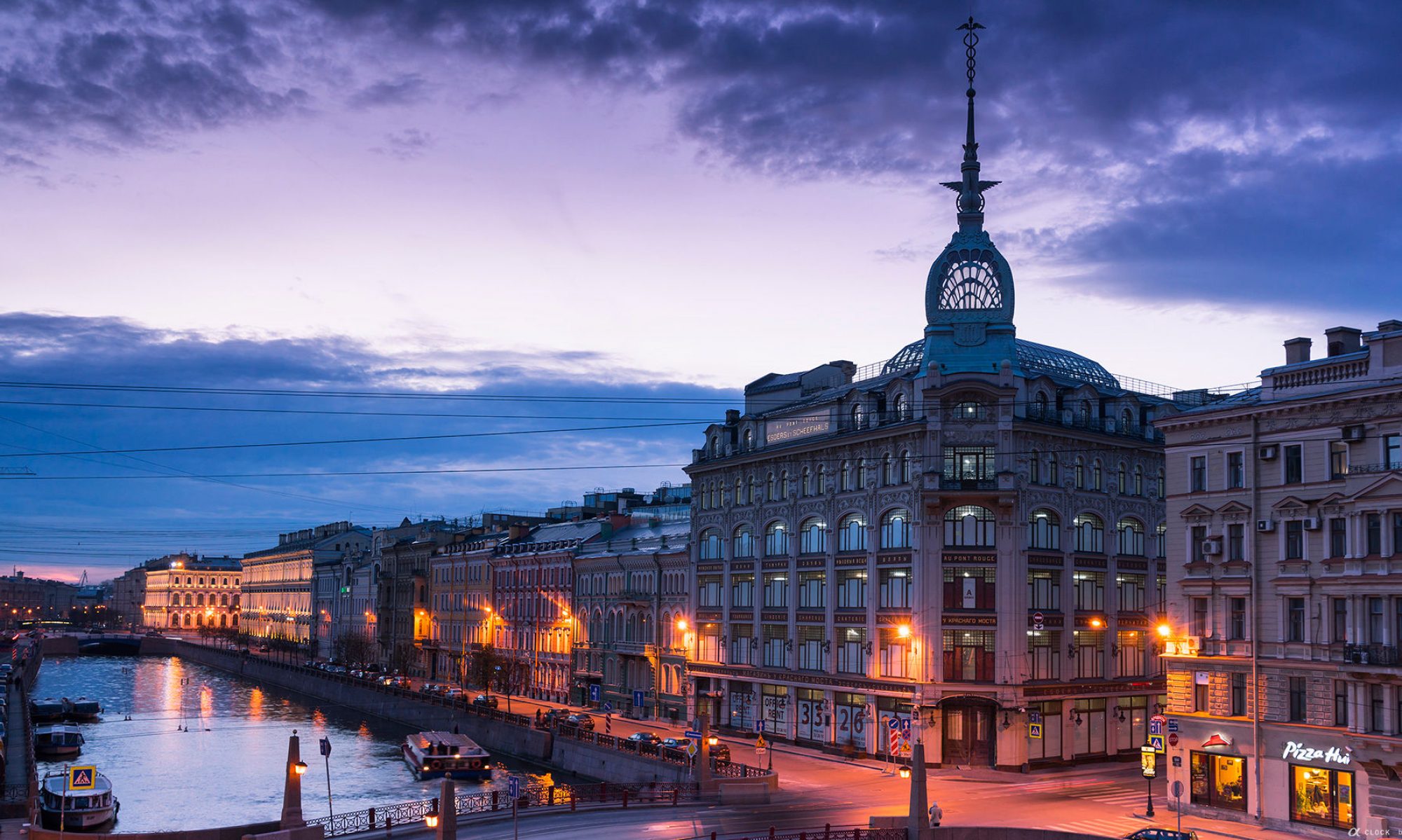
一步一步学俄语

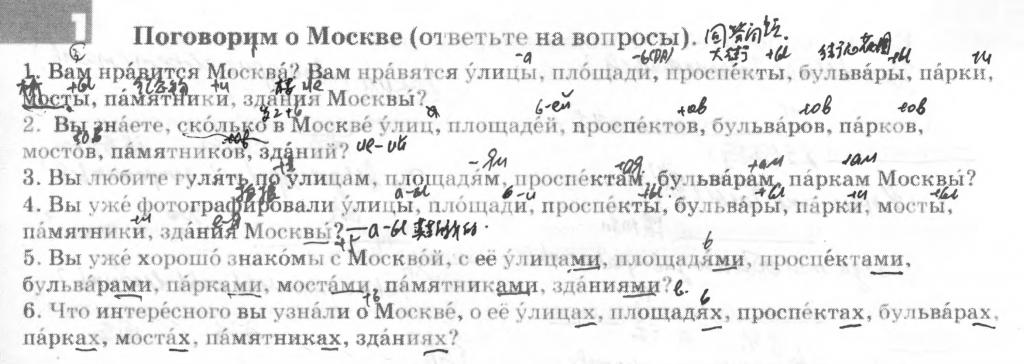
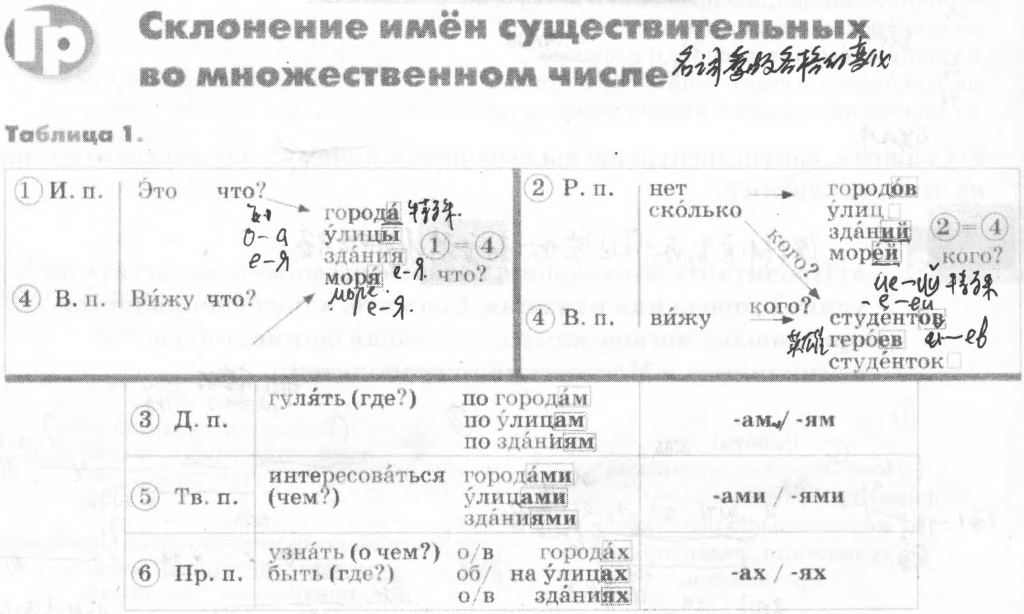
完成体动词被动结构 必须用被动形动词
| 动词 | 被动结构 |
| нсв | нсв_ся |
| св | 必须用被动形动词 |
| построить | св | 修建 |
| построенный | 被动形动词 | 被修建的 |
| построен | 短尾 | 被建造 |
| 现在时 | построен (+а, +о,+ы) | 房子在被修建 |
| 将来时 | будет / будут построен (+а, +о,+ы) | 房子将被修建 |
| 过去时 | был(+а,+о,+и) построен (+а, +о,+ы) | 房子被修建了 |

1 )

1 Виктор Михайлович Васнецов 维克多 米哈依洛维奇 瓦斯涅佐夫 переезжать – переехать (乘车、马、船等)越过、驶过、通过;搬往,迁往
2、Троицкий 特洛伊茨基的 переулок 胡同,小巷 построить修建
3、完成体动词被动结构 必须用被动形动词 построить – построенный -построен был(+а,+о,+и) построен (+а, +о,+ы) 被修建了 по+3 按照 проект 方案 设计,规划,图纸,设计图,设计书,草案,方案,工程项目,计划 самый 亲自的
4、мебе́ль 家具 ь阴性 сделать -сделанный – сделан родной 亲近的 Аркадий 阿尔卡季 被谁 用五格
2、)

1、伟大的科学发明
2、 созда́ть-со́зданный-со́здан(-а,-о,-ы) 被创作;被创建(过去时был/была/были+ ;将来时 будет/будут + ) он – им5格
3、同一时代的人 惊奇удивляться – удивиться кому-чему或на кого-что对谁/什么表示惊奇 要知道 仅仅是
4、立刻 сразу
5 приня́ть- (-нять) – при́нятый – при́нят (прнята́, при́нято, при́няты )被接受;被采纳 大年级
3、)

1、 众说周知 написа́ть- напи́санный – написан (-а,-о, -ы)被写完
2、结束 (св) зако́нчить – зако́нченный – зако́нчен ( -а -о -ы )
3、смерть死亡 之后 после+2 над+5 表示行为所涉及的对象,属于; произведение 作品,产物,著作
4 )
периодический 周期的,周期性的 / закон 法律,规律,法则 / элемент 化学元素
периодический закон химических элементов 化学元素周期律
открыть 打开,发现,揭露 св – откры́ть – откры́тый -откры́т ( -а -о – ы )被发现
таблица химических элементов 化学元素表
(существовать 存在 )существует легенда 传说
видеть что во+6 сне 梦见(在梦里看见)сон 梦

第一段
1、现在几乎所有的俄罗斯城市都建有家庭计划中心。почти几乎 2、создаться 被创建 3 плани́рование 计划,规划 4 这些中心接待的都是一些年轻人,一些渴望从心理师、医 生、教育工作者那里得到人生建议的年轻人。консультация (被咨询者的)意见,(对质疑的)解答 консультант/ консультантка 顾问 консультативный 咨询的 协商的 консультировать(кого或无补语)给…答疑,解答疑问,进行辅导 с кем-чем 向…咨询 консультироваться с кем-чем 征求…意见,咨询,质疑 5 опытный 有经验的 心理师、医 生、教育工作者 6 讨论 7 在这些中心讨论的都是年轻家庭里的焦点问题: 物质难题、住房难题以及孩子的生育与教养难题。наибо́лее 特别地,最,(副) (常与形容词、副词连用, 构成最高级形式) 8 物质难题、住房难题以及孩子的生育与教养难题 материя 物质 материальный 物质的 материализовать 使…具体化 жильё 住房,住所 рождение 出生 воспитание 教育 ребенок

第二段
在最近这段时间里心理师和教育工作者们经常会讨论一个话题:一个家庭里蔽好有几个孩子?一个还是更多?每个家庭都有自己的看法。1 最近 2 心理师和教育工作者们 3 一个还是一些 4 по-своему 以特殊方式,按自己的方式


第三段
1 多子女家庭在现代社会已经不流行了。многоде́тный 子女多的 выйти из мо́ды 过时 2 现在人们普遍认为生一个孩子才是最明确最适宜的选择。счита́ться-счесться(特殊-сть)(被)认为 3 一个孩子也 就意味着他可以得到家里大人们大部分的时间与关注,他的物质生活就可以得到保障。уделяться (被)抽出,(被)分出 нсв I кому-чему больше 更多的 4 лучше (хороший,хорошо的比较级)更好 物质生活就可以得到保障 5 但是那些独生子女家庭里 的孩了,尤其当他们半大不大的时候,经常会感觉自己一个人很孤单。独生子女 подросток 少年(12-17) одиночество 孤单 6 这些孩子们 表现的很不自信很不独立 неуверенный себе в+6 对自己不自信 сила 力量 7 因为他们已经习惯于被家里的爸爸妈妈们,爷爷奶奶们所照顾着。опекаться (被)照管,(被)看管,(被)关心;(被)监护 постоянно 习惯

第四段
1 当然,当 一个家庭里有许多孩子的时候,家 长们不可能分摊很多时间到每一个孩子身上。проводить度过 2 但是在多子女家庭, 经常一起玩的哥哥姐姐们可以给小一点的孩子起到榜样作用,从而教育他们。воспитаться – воспитаться (被)教育;(被)培养 在大家庭成长起来的孩了总是会很快变得独立与自信。становиться (用作系词)成为 самостоятельный 独立的
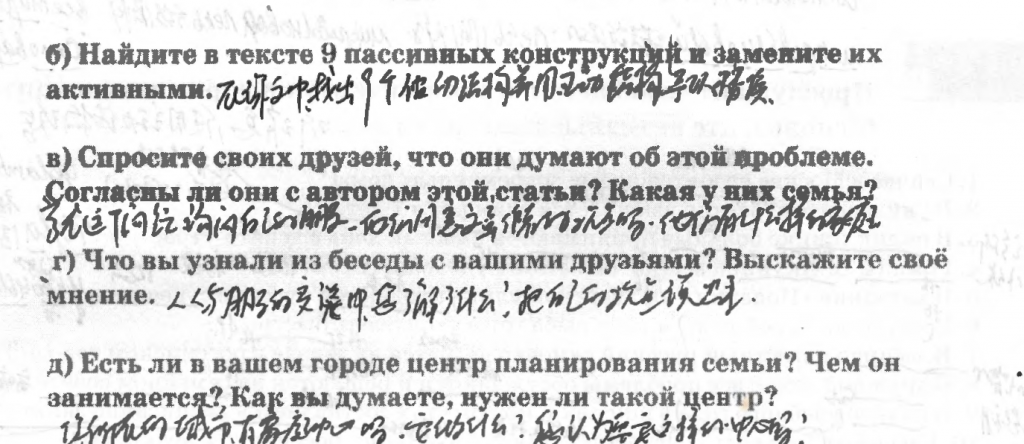
There is no sequence of tenses in Russian whatsoever.
The information in a subordinate sentence is understood to be relative to the main clause:
So if the piece of information is simply about where things are or what someone does, use present tense in the subordinate clause.
Use the particle “ли” in reported questions or situations when you don’t know which option is true:
The particle is attached to the word that is in doubt. It needn’t be a verb, for instance, «Я не зна́ю, в Москве́ ли он» (i.e. whether he is in Moscow or in some other city). «Ли» generally attaches to the first stressed word of the clause.
The verb говори́ть is used both as “to say, to tell” and as “to talk, to speak”. When you report someone’s words, obviously, the 2nd meaning is in action:
Russian has a whole set of perfective verbs. Usually you arrange verbs neatly into closely matching pairs of imperfective + perfective. And these are different for the two meanings of «говори́ть»:
Remember «Скажи́те, пожа́луйста … » ?
Rather than referring to ongoing actions or past(future) actions in general, perfective verbs refer to actions in a point-wise manner, ignoring the action’s inner structure. That is, such “singular” actions happen at some particular “moment” and can be conveniently arranged in a sequence when telling a story. This distinction is about to come into focus in one of the following skills.
Being too lazy to make up many different verbs, we usually make new ones based on the old ones. The vast majority of unprefixed verbs are imperfective.
The last phenomenon is known as suppletion and only happens for a limited number of verbs and their derivatives. The English verb “to go” is another example of such behavior (its past form is “went”).
Note that suffixation is very popular for secondary imperfectives. Usually only one prefixed verb is considered an “ideal match” for an imperfective verb. Others are somewhat different in meaning (or a lot different). But you need imperfective partners for these, too, so Russian uses suffixes for that:
The verb «мочь» is used to talk about the general possibility of something, and also, very often—about your ability to perform something and reach some result. Perfectives are used in this second meaning:
We do not use мочь for skills. Russian has уметь for this.
Both mean “again” and are largely interchangeable when they mean that an action from the past has occurred again.
«Опять» is more popular but it’s focused on staying “the same as before”. «Снова» (cf. «новый») can also mean action performed “anew, from the beginning”.
Only «опять» is used in «опять же» (~”besides”).
When asking someone to repeat, use «ещё раз».
imperfective verbs
Perfective verbs describe events: singular, definite actions that are viewed as localized in time. They “happened” at some moment (“I made a video”, “I slept for some time and then went outside”). Or they describe a certain change of state at some “turning point” (not yet eaten→eaten, not slept enough→slept enough and ready to get up).
It is argued in a few works that “a natural” perfective is just a prefixed verb where a prefix’s metaphorical meaning so conveniently overlaps the verb’s own meaning, that you cannot feel any change. So don’t be surprised if some vague actions have several perfective matches for a single imperfective verb.
That also means that sometimes you’d better memorize a pair even if it is technically a “poor” match. After all, in some contexts it will come in handy:
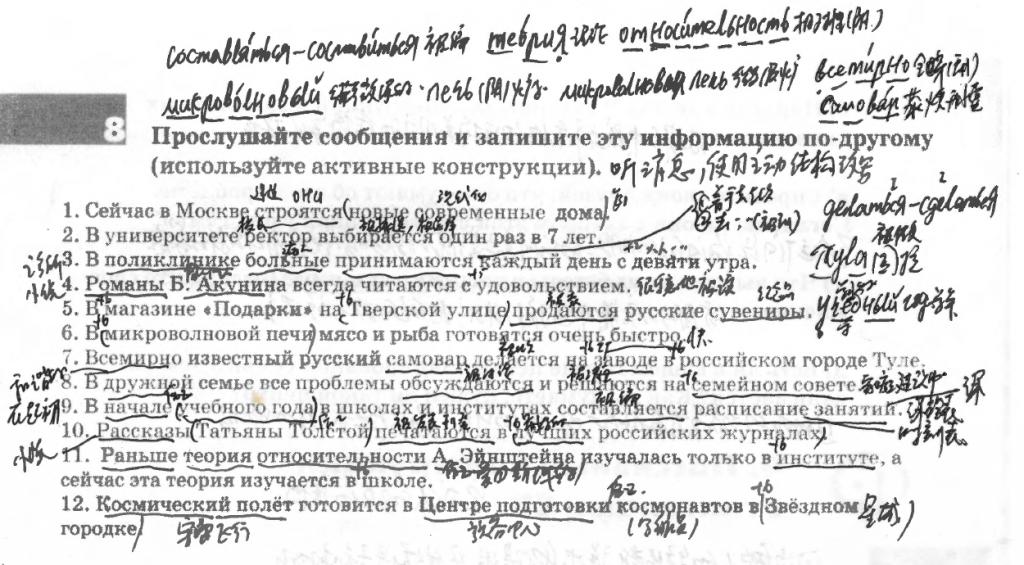
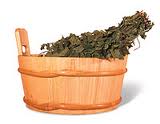
Ба́ня – э́то ме́сто, куда́ ру́сские лю́ди хо́дят, что́бы рассла́биться, встре́титься с друзья́ми и помы́ться. Ба́ня о́чень похо́жа на са́уну, но име́ет свои́ осо́бенности. Ка́ждый тури́ст до́лжен сходи́ть в ба́ню!
Настоя́щая ба́ня – э́то о́чень хорошо́ для здоро́вья и о́чень интере́сно. Ита́к, в чём ра́зница ме́жду ба́ней и обы́чной са́уной? Са́мое гла́вное – э́то ве́ник. Ве́ник – э́то свя́зка молоды́х ве́ток како́го-нибу́дь де́рева (обы́чно берёзы, пи́хты и́ли ду́ба). Ру́сские лю́бят брать в ба́ню ве́ник из берёзы и массажи́ровать им друг дру́га. Это прия́тно и поле́зно для здоро́вья.
Лю́ди сидя́т в ба́не до́лго, до того́ моме́нта, когда́ им так жа́рко, что они́ уже́ не мо́гут терпе́ть. Тогда́ они́ выбега́ют из ба́ни на у́лицу и пры́гают в снег, что́бы охлади́ться. В совреме́нных ба́нях есть бассе́ин вме́сто сне́га. В э́том бассе́ине вода́ о́чень холо́дная. По́сле ба́ни ру́сские лю́бят пить чай и разгова́ривать.
The Russian sauna is a place where Russians go to relax, meet friends and wash themselves. Banya is very similar to a sauna but has its own peculiarities. Every tourist should visit a banya!
A real banya is very good for health and very interesting. So, what is the difference between a Russian sauna and the common sauna? The most important one is the “venik”. A venik is a bunch of green twigs from a tree (usually birch, fir tree or oak). Russians love taking to the banya a venik from birch and massage each other with it. That is pleasant and healthy.
People stay in a banya for a long time, until the moment when they feel so hot that they cannot bear it any longer. Then, they run out of the banya outside and jump into the snow in order to cool down. In modern banyas there is a swimming pool instead of snow. In this swimming pool the water is very cold. After banya, Russians like to have tea and chat.